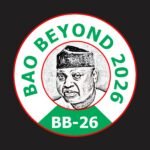The Dutch auction system is a method of selling goods or securities where the price of the item is gradually reduced until a buyer is found. In Nigeria, the Dutch auction system has been used by the Central Bank of Nigeria (CBN) to sell treasury bills and other government securities.
The Dutch auction system in Nigeria was introduced in 2003 by the CBN as part of its efforts to deepen the financial market and promote transparency in government securities transactions. Under this system, the CBN offers securities for sale at a starting price and gradually lowers the price until buyers are found. The system allows investors to bid for the securities at the prevailing market price, which is usually determined by supply and demand.
The Dutch auction system in Nigeria has been generally successful in promoting transparency and efficiency in government securities transactions. It has also helped to attract a wider range of investors, including retail investors, to the Nigerian financial market. However, the system has also faced some criticism for its potential to create volatility in the market and for the limited access to information for smaller investors.
Despite these challenges, the Dutch auction system remains an important tool for the CBN in managing the Nigerian financial market and promoting economic growth and development.







